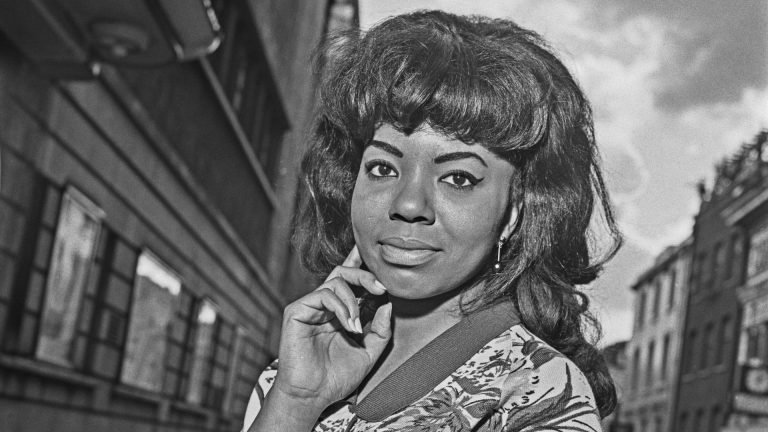On a winter’s day in midtown Manhattan in 1966, a worried Erma Franklin looked in on her sister Ree and found the woman with the soaring voice sitting silently at her window as waves of falling snow drifted through a grey sky.
Aretha Franklin was 24 and had lived enough life for a woman twice her age. Pregnant at 12, she was a mother of two at 15 – by which time her own mother had been dead for five years. She was married to an unfaithful husband, father to neither of her children, who was also her manager. Her own Baptist preacher father, Clarence LaVaughan Franklin, a huge and occasionally brutal presence, remained the most important man in her life.
Thanks to the gift with which she enthralled celebrity visitors as a child (Mahalia Jackson, Duke Ellington, Martin Luther King and Sam Cooke had all turned up to pay homage to CL, only to be captivated by his daughter’s command of gospel classics), she had a successful recording career and was earning the equivalent of $1m a year, enough to maintain a substantial Detroit family home and a New York apartment. But Franklin was lost and deep in one of the depressions that would plague her intermittently throughout her life.
As the sisters looked together at the falling snow, Erma asked what she was thinking. “I’m not thinking, I’m dreaming,” Franklin replied. Dreaming about what? “That things will get better.”
In addition to her complex and draining private life, Franklin had tired of the jazz-pop classics favoured by her record company, Columbia. A move to bluesier material still overlooked the more spiritual sounds Franklin felt a deeper connection to. “I still didn’t really know who I was,” she said. She wanted “to compose real music from my heart”.
The man who helped Aretha Franklin win her soul back was Jerry Wexler, a Jewish guy from Florida who’d coined the phrase “rhythm and blues” and turned Atlantic into one of the hottest labels in the United States. He picked up Franklin’s contract and arranged for her to record in Muscle Shoals, the rickety Alabama studio used by Stax Records, with its own murderers’ row of top-notch session musicians, the Swampers.
It was nearly a disaster. Presented with I Never Loved a Man (The Way I Love You), a song by one of her husband Ted White’s friends from Detroit, the Swampers struggled to find a way in until Franklin, quiet and withdrawn, sat down at the piano. Then, said drummer Roger Hawkins, “when she began to hit those chords and that sound came out of her mouth, nothing mattered”.
The reverberations were such that two of those present at the session started to write a song for Franklin on the spot, the timeless Do Right Woman – Do Right Man. The musicians began to lay down the new track. The mood was celebratory, and then over-celebratory. And then voices were raised – not in soulful joy, but in anger.
Suggested Reading

Mary Wells: The Queen of Motown who renounced her throne
One of those was Ted White’s, having perceived a racial slight. He marched his wife out of the building and back to New York, from where he declared that she would never work for Atlantic again. When sessions resumed with the same band in Manhattan a fortnight later, White was not present. Two weeks later, a single was released comprising the two tracks begun in Muscle Shoals and finished in New York, and it became a million-seller.
I Never Loved a Man… represented and understood Franklin in a way that had eluded Columbia. It was in turns soulful, spiritual and sexual. It spoke deeply to Franklin – the lyrics begin: “You’re a no good heartbreaker, You’re a liar and you’re a cheat, And I don’t know why, I let you do these things to me.”
The accompanying LP contained another signature song that must have taken root in Franklin’s psyche. It was her frenetic, gender-swapped arrangement of Otis Redding’s Respect, with sisters Erma and Carolyn on keening backing vocals.
Ree demanded the respect she was due, but she quickly found out she was not alone. The song reflected, she said, “the need of a nation, the need of the average man and woman in the street, the businessman, the mother, the fireman, the teacher – everyone wanted respect.” Respect was universal, and helped win her a nickname she carried through the decades, through jaw-dropping moments of vocal exultation, through dubious choices and through considerable personal turmoil – The Queen of Soul.
Wexler called her something else. “I think of Aretha as Our Lady of Mysterious Sorrows,” he wrote. “Her depressions could be as deep as the dark sea… anguish surrounds Aretha as surely as the glory of her musical aura”.
Considering the battles that raged within Aretha Franklin, perhaps the thing about her that commands most respect is not her genius, but her persistence. She never forgot her struggles, or the struggles of others.
Respect, she said, “took on monumental significance” and was “one of the battle cries of the civil rights movement”. Together with worship and song, civil rights had been a part of Franklin’s life from the year dot. As her star rose, her grassroots participation grew, perhaps helping to fill the empty spaces in her life.
“Several times, Aretha helped us make payroll,” said the civil rights campaigner-turned politician Jesse Jackson. “On one occasion, we took an 11-city tour with her and Harry Belafonte… and they put gas in the vans. She did 11 concerts for free and hosted us at her home and did a fundraiser for my campaign. Aretha has always been a very socially conscious artist, an inspiration, not just an entertainer.”



